Discover the Women of the Hall
These are the Inductees of the National Women’s Hall of Fame. Select any of the women to discover their stories and learn how they have influenced other women and this country.
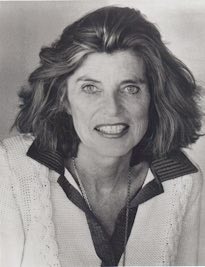
Eunice Kennedy Shriver
For more than thirty years, Eunice Kennedy Shriver served as a leader in the worldwide struggle to enhance the lives of people with intellectual disabilities. Under her leadership, the Joseph P. Kennedy, Jr. Foundation aided in the creation of The President’s Committee on Mental Retardation (1961) and the development of the National Institute for Child Health and Human Development (1962). Shriver is credited as the founder of the Special Olympics, an organization that today serves 3 million people with intellectual disabilities in nearly 200 nations around the world.
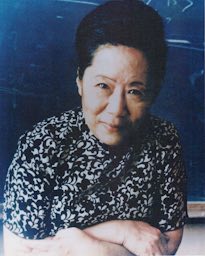
Chien-Shiung Wu
Nuclear physicist whose pioneering work altered modern physical theory and changed the accepted view of the structure of the universe.
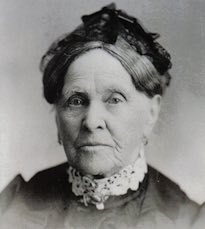
Lydia Moss Bradley
Educator, founder of Bradley University and coeducation advocate. Bradley was a pioneer in business and education, the first female member of a national bank board in the United States. Noted as a philanthropist who financially supported many social causes, she determined that Bradley University would be for both women and men.
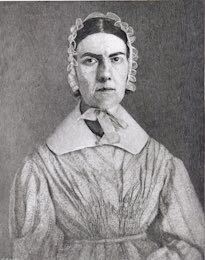
Angelina Grimké Weld
Along with Sarah Grimké, wrote numerous published papers which championed abolition and women’s rights. The Grimké sisters were southerners who became the first female speakers for the American Anti-Slavery Society. Sarah’s Letters on the Equality of the Sexes exposed the plight of factory women in New England, as well as arguing on behalf of women’s rights and abolition. Through their examples and their words, the Grimkés proved that women could affect the course of political events and have a far-reaching influence on society.
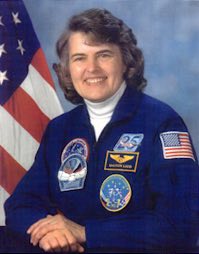
Shannon W. Lucid
A commercial, instrumental and multi-engine-rated pilot, Dr. Shannon Lucid was a member of the first astronaut class to admit women (1979). In her more than 30 year tenure with NASA, she served in various capacities and participated in five space flights. Dr. Lucid was the first woman to hold an international record for the most flight hours in orbit by any non-Russian, and, until June 2007, she held the record for the most flight hours in orbit by any woman in the world – 5,354 hours or 223 days in space.

Julia Ward Howe
Suffragist and author of “Battle Hymn of the Republic.” Howe was a lecturer on religious subjects, a playwright and an organizer of a women’s peace movement. Co-founder (with Lucy Stone et al) of the New England Women Suffrage Association, she lectured and wrote extensively in support of the freedom of women to have an equal place with men in both public and private life.

Eunice Kennedy Shriver
For more than thirty years, Eunice Kennedy Shriver served as a leader in the worldwide struggle to enhance the lives of people with intellectual disabilities. Under her leadership, the Joseph P. Kennedy, Jr. Foundation aided in the creation of The President’s Committee on Mental Retardation (1961) and the development of the National Institute for Child Health and Human Development (1962). Shriver is credited as the founder of the Special Olympics, an organization that today serves 3 million people with intellectual disabilities in nearly 200 nations around the world.

Chien-Shiung Wu
Nuclear physicist whose pioneering work altered modern physical theory and changed the accepted view of the structure of the universe.

Lydia Moss Bradley
Educator, founder of Bradley University and coeducation advocate. Bradley was a pioneer in business and education, the first female member of a national bank board in the United States. Noted as a philanthropist who financially supported many social causes, she determined that Bradley University would be for both women and men.

Angelina Grimké Weld
Along with Sarah Grimké, wrote numerous published papers which championed abolition and women’s rights. The Grimké sisters were southerners who became the first female speakers for the American Anti-Slavery Society. Sarah’s Letters on the Equality of the Sexes exposed the plight of factory women in New England, as well as arguing on behalf of women’s rights and abolition. Through their examples and their words, the Grimkés proved that women could affect the course of political events and have a far-reaching influence on society.

Shannon W. Lucid
A commercial, instrumental and multi-engine-rated pilot, Dr. Shannon Lucid was a member of the first astronaut class to admit women (1979). In her more than 30 year tenure with NASA, she served in various capacities and participated in five space flights. Dr. Lucid was the first woman to hold an international record for the most flight hours in orbit by any non-Russian, and, until June 2007, she held the record for the most flight hours in orbit by any woman in the world – 5,354 hours or 223 days in space.

Julia Ward Howe
Suffragist and author of “Battle Hymn of the Republic.” Howe was a lecturer on religious subjects, a playwright and an organizer of a women’s peace movement. Co-founder (with Lucy Stone et al) of the New England Women Suffrage Association, she lectured and wrote extensively in support of the freedom of women to have an equal place with men in both public and private life.
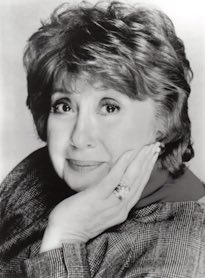
Beverly Sills
Acclaimed Soprano who became the first woman General Director and then President of the New York City Opera, and later first woman chair of the Lincoln Center for the Performing Arts, guiding the Center to become one of the nation’s most important institutions. She was not only directly responsible for the discovery and launch of many young performers, but was also actively involved in a myriad of humane works, including the National Victim Center and (as National Chair) the March of Dimes Mothers March on Birth Defects.
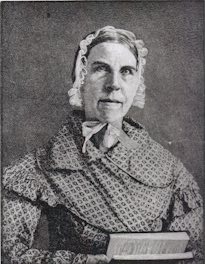
Sarah Grimké
Along with Angelina Grimké Weld, who wrote numerous published papers which championed abolition and women’s rights. The Grimké sisters were southerners who became the first female speakers for the American Anti-Slavery Society. Sarah’s Letters on the Equality of the Sexes exposed the plight of factory women in New England, as well as arguing on behalf of women’s rights and abolition. Through their examples and their words, the Grimkés proved that women could affect the course of political events and have a far-reaching influence on society.
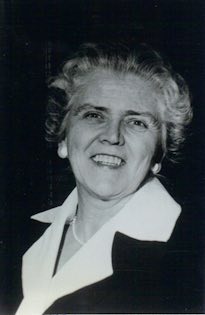
Mary A. Hallaren
Leader who, as Director of the Women’s Army Corps, championed permanent status for women in the military after World War II. Later, as Director of Women in Community Service, Hallaren advocated employment opportunities for at-risk women.
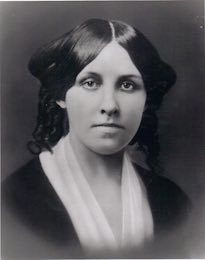
Louisa May Alcott
Author who produced the first literature for the mass market of juvenile girls in the 19th century. Her best-known work, Little Women, has appeared continuously in print since its first publication in 1868-69.
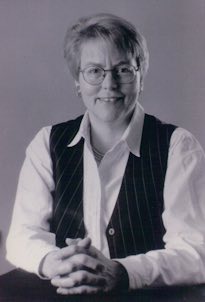
Charlotte Anne Bunch
Founder and director of the Center for Women’s Global Leadership at Rutgers University. Bunch has helped shape the global feminist movement and created consciousness about gender-based human rights. She is also a leader in national and international networking and advocacy for women.
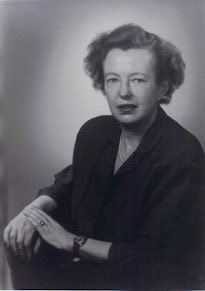
Maria Goeppert-Mayer
First U.S. woman and second woman ever to win the Nobel Prize in Physics. The Prize was awarded for developing the shell model of the nucleus of the atom, the basic model for the description of nuclear properties. Mayer was also a member of the team that first isolated fissionable uranium 235.

Beverly Sills
Acclaimed Soprano who became the first woman General Director and then President of the New York City Opera, and later first woman chair of the Lincoln Center for the Performing Arts, guiding the Center to become one of the nation’s most important institutions. She was not only directly responsible for the discovery and launch of many young performers, but was also actively involved in a myriad of humane works, including the National Victim Center and (as National Chair) the March of Dimes Mothers March on Birth Defects.

Sarah Grimké
Along with Angelina Grimké Weld, who wrote numerous published papers which championed abolition and women’s rights. The Grimké sisters were southerners who became the first female speakers for the American Anti-Slavery Society. Sarah’s Letters on the Equality of the Sexes exposed the plight of factory women in New England, as well as arguing on behalf of women’s rights and abolition. Through their examples and their words, the Grimkés proved that women could affect the course of political events and have a far-reaching influence on society.

Mary A. Hallaren
Leader who, as Director of the Women’s Army Corps, championed permanent status for women in the military after World War II. Later, as Director of Women in Community Service, Hallaren advocated employment opportunities for at-risk women.

Louisa May Alcott
Author who produced the first literature for the mass market of juvenile girls in the 19th century. Her best-known work, Little Women, has appeared continuously in print since its first publication in 1868-69.

Charlotte Anne Bunch
Founder and director of the Center for Women’s Global Leadership at Rutgers University. Bunch has helped shape the global feminist movement and created consciousness about gender-based human rights. She is also a leader in national and international networking and advocacy for women.

Maria Goeppert-Mayer
First U.S. woman and second woman ever to win the Nobel Prize in Physics. The Prize was awarded for developing the shell model of the nucleus of the atom, the basic model for the description of nuclear properties. Mayer was also a member of the team that first isolated fissionable uranium 235.
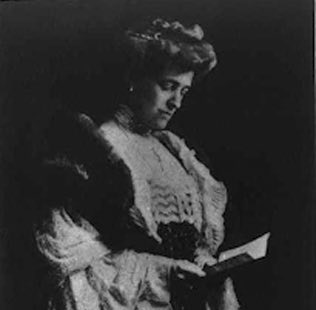
Edith Wharton
American novelist and short story writer of the 20th century. The first woman to receive the Pulitzer Prize for fiction (for The Age of Innocence, 1929), Wharton was a prolific writer who averaged more than a book a year after the age of 40 until her death.
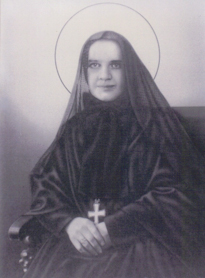
St. Frances Xavier Cabrini
Established orphanages, day care centers, schools, clinics and hospitals for immigrants in the United States and around the world. She established a missionary order of women and was the first American citizen to be canonized a saint.
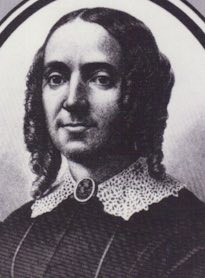
Ernestine Louise Potowski Rose
Early advocate for women’s rights, traveling for more than three decades giving eloquent speeches and seeking petition signatures. Rose sought women’s rights, the abolition of slavery and many other reforms before others took up the causes. From 1835 through 1869, she was often the first woman to speak in public on many platforms.
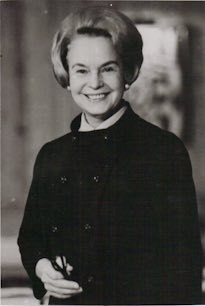
Oveta Culp Hobby
Shaped the development of two major government institutions as first Director of the Women’s Army Corps and first Secretary of the Department of Health, Education and Welfare. She was the first female to attain the rank of United States Colonel and the only woman to serve in President Dwight D. Eisenhower’s cabinet.

Anne Morrow Lindbergh
Author of numerous elegant essays, journals and other books. Lindbergh also excelled as co-pilot and navigator with her husband Charles on their historic flights to promote the development of international aviation.
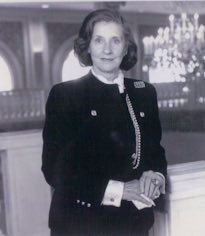
Wilhelmina Cole Holladay
Founder of the National Museum of Women in the Arts in Washington, D.C., which brings national and international attention to the vast achievements of women in art.

Edith Wharton
American novelist and short story writer of the 20th century. The first woman to receive the Pulitzer Prize for fiction (for The Age of Innocence, 1929), Wharton was a prolific writer who averaged more than a book a year after the age of 40 until her death.

St. Frances Xavier Cabrini
Established orphanages, day care centers, schools, clinics and hospitals for immigrants in the United States and around the world. She established a missionary order of women and was the first American citizen to be canonized a saint.

Ernestine Louise Potowski Rose
Early advocate for women’s rights, traveling for more than three decades giving eloquent speeches and seeking petition signatures. Rose sought women’s rights, the abolition of slavery and many other reforms before others took up the causes. From 1835 through 1869, she was often the first woman to speak in public on many platforms.

Oveta Culp Hobby
Shaped the development of two major government institutions as first Director of the Women’s Army Corps and first Secretary of the Department of Health, Education and Welfare. She was the first female to attain the rank of United States Colonel and the only woman to serve in President Dwight D. Eisenhower’s cabinet.

Anne Morrow Lindbergh
Author of numerous elegant essays, journals and other books. Lindbergh also excelled as co-pilot and navigator with her husband Charles on their historic flights to promote the development of international aviation.

Wilhelmina Cole Holladay
Founder of the National Museum of Women in the Arts in Washington, D.C., which brings national and international attention to the vast achievements of women in art.
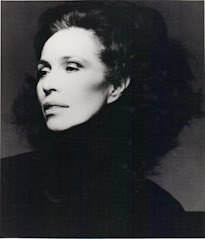
Maria Tallchief
Prima ballerina with the New York City Ballet and artistic director for the Lyric Opera Ballet in Chicago. Tallchief created a distinctive style and interpretation which continues to influence contemporary ballet. She used her international acclaim to bring about greater understanding and appreciation of Native Americans.
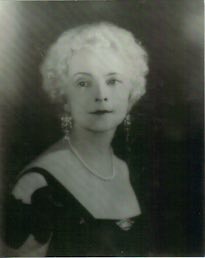
Anne Dallas Dudley
Political activist central to the campaign to pass the 19th Amendment to the U.S. Constitution. Serving as National Campaign Director as well as in her home state of Tennessee, she led a march of 2,000 women in the South’s first suffrage parade in 1914.
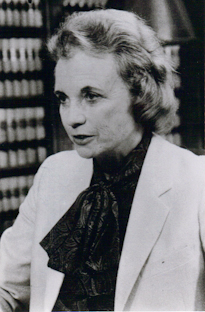
Sandra Day O'Connor
First woman appointed to the U.S. Supreme Court. Following successes as Assistant Attorney General and State Senator in Arizona, O’Connor was elected to Superior Court and then the Court of Appeals. She was named to the Supreme Court by President Ronald Regan.
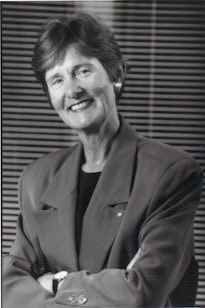
Nannerl O. Keohane
The first contemporary woman to head both a major women’s college (Wellesley) and a research university (Duke). Her efforts have increased minority student enrollment and improved faculty diversity.
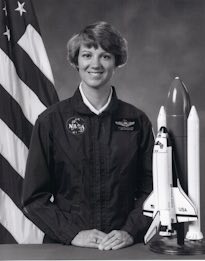
Eileen Collins
First American woman to pilot a spacecraft. A math teacher at the Air Force Academy and test pilot, Collins served as pilot of the space shuttle Discovery during a mission to rendezvous with space station Mir. In July, 1999 she became NASA’s first female commander in space.
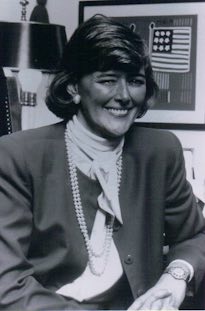
Patricia Schroeder
Served as the senior woman in Congress, first elected in 1972 from Colorado. Schroeder worked to establish a national pro-family policy, promoting issues such as parental leave, child care and family planning.

Maria Tallchief
Prima ballerina with the New York City Ballet and artistic director for the Lyric Opera Ballet in Chicago. Tallchief created a distinctive style and interpretation which continues to influence contemporary ballet. She used her international acclaim to bring about greater understanding and appreciation of Native Americans.

Anne Dallas Dudley
Political activist central to the campaign to pass the 19th Amendment to the U.S. Constitution. Serving as National Campaign Director as well as in her home state of Tennessee, she led a march of 2,000 women in the South’s first suffrage parade in 1914.

Sandra Day O'Connor
First woman appointed to the U.S. Supreme Court. Following successes as Assistant Attorney General and State Senator in Arizona, O’Connor was elected to Superior Court and then the Court of Appeals. She was named to the Supreme Court by President Ronald Regan.

Nannerl O. Keohane
The first contemporary woman to head both a major women’s college (Wellesley) and a research university (Duke). Her efforts have increased minority student enrollment and improved faculty diversity.

Eileen Collins
First American woman to pilot a spacecraft. A math teacher at the Air Force Academy and test pilot, Collins served as pilot of the space shuttle Discovery during a mission to rendezvous with space station Mir. In July, 1999 she became NASA’s first female commander in space.

Patricia Schroeder
Served as the senior woman in Congress, first elected in 1972 from Colorado. Schroeder worked to establish a national pro-family policy, promoting issues such as parental leave, child care and family planning.
